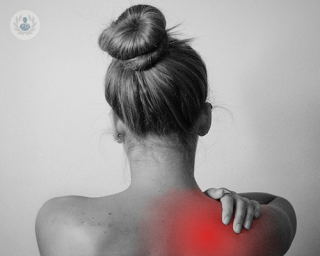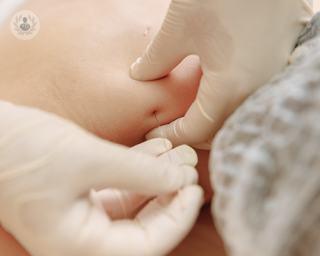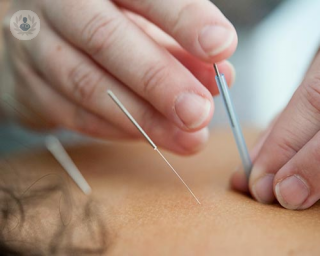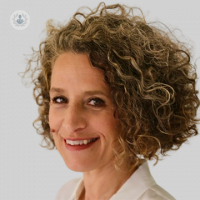Acupuncture
Dr Selwyn Dexter - GP (general practitioner)
Created on: 11-13-2012
Updated on: 01-12-2024
Edited by: Sophie Kennedy
What is acupuncture?
Acupuncture is a form of alternative or complementary medicine. It is derived from ancient Chinese medicine. There are many techniques used, the most famous using thin needles placed in specific areas known as acupuncture points. This procedure seeks to stimulate certain parts of the body, affecting their function. Acupuncturists say that these points correspond to areas of the body with the highest electrical conductance.

Which conditions can be treated with acupuncture?
This technique is generally used for pain relief. It has been used in China and other Asian countries for throusands of years. However, due to the fact that acupuncture has not been proven scientifically, it has been described as a kind of pseudoscience.
Why do people opt for treatment with acupuncture?
It has been proven that acupuncture is not medically effective, though it may help relieve stress and some people link it to the placebo effect. It has also been suggested that it could be useful as a form of therapy for nausea caused by chemotherapy or headaches, among other types of pain. Although it can relieve certain types of pain, there isn’t any solid evidence that acupuncture is a completely effective treatment to combat them, so it should always be used alongside any treatment that your GP has recommended.
What does it involve?
In acupuncture, thin needles are inserted into the body in specific acupuncture points. During a session, you must lie still while needles are inserted under the skin. The needles remain in the skin for around 10 to 30 minutes, depending on the acupuncturist’s advice. Generally, acupuncture is not too painful, but it can be depending on the insertion point and the individual performing the procedure.
How should you prepare for acupuncture?
Only a qualified acupuncturist should administer treatment. They should have specialist training and an acupuncture licence, as well as basic traditional medicine training. If done correctly it doesn’t have many side effects. Check with a credible organisation, such as the British Acupuncture Council, to see if the acupuncturist is listed and therefore regulated. If not done correctly, acupuncture can cause an infection.
What are the possible side-effects?
The patient will feel relaxed during and after the acupuncture session. This relaxation may be physical or mental and it normally comes with a sense of comfort or satisfaction. Feeling this means that the flow of energy has been rebalanced. However, for some patients it takes several sessions before they feel this. A reason for this may be that the patient is less sensitive to the acupuncture needles or because they are nervous during treatment. After a few sessions the patient will feel relaxed as their body will be calmer and unblocked.
Alternative treatments
Acupuncture is an alternative therapy in itself and should only be undertaken upon informing your regular doctor or after consulting with a specialist, who will be able to advise medical treatment if necessary. Consult your doctor for advice before undertaking any additional therapies or treatment plans.









